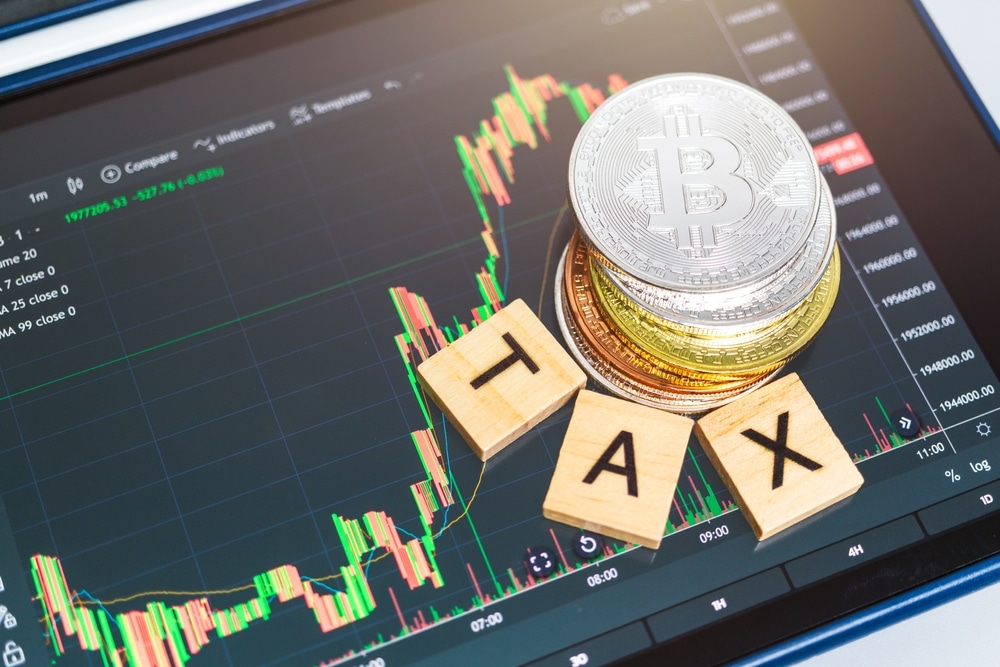
White House Proposes 30% Excise Tax Targeting Crypto Mining Firms
The White House is set to impose a 30% excise tax targeting crypto mining activities. In the report issued on Tuesday, May 2, Biden’s administration emphasizes that charging the excise tax on the miners’ profits would satisfy the American community’s best interest.
The move is unsurprising given that the administration had floated the proposal to impose an energy tax in March. Citing the need to safeguard the environment, the White House clarified that the proposed tax would prompt mining firms to improve their accountability of adverse impacts imposed on society.
Tax to Stimulate Accountability in Crypto Mining Operations
The Tuesday report rules out compelling firms to pay the entire cost for the harm imposed on others. Instead, the 30% excise tax seeks to stimulate consciousness and accountability in their operations.
The excise tax targets will likely affect digital asset miners in 2024 as the firms involved must settle Uncle Sam’s tax relative to their electricity costs. The firms would begin incurring a 10% tax that would increase annually to a ceiling cap of 30%.
The White House anticipates lowering its 2024 budget deficit by $74 million in the initial year. The administration targets the collection through the excise tax to grow and lower the 2033 fiscal budget deficit by $444 million.
Digital Asset Mining Energy (DAME) Tax Targeting Consumption Levels
The tax identified as the Digital Asset Mining Energy (DAME) tax would apply equally to all miners earning through validating transactions executed within the proof-of-work networks (POW). Besides the POW miners, the DAME tax would apply to proof-of-stake networks such as Ethereum. It confirms that the tax would net all crypto miners regardless of their energy consumption levels.
The statistics captured in the Tuesday report estimate the hourly energy consumption levels by the crypto miners in 2022 to 50,000 Gigawatts. The high level of energy consumption almost matched the televisions and likely doubled the home computers’ level.
White House indicated that the numbers represent the prevailing situation proven by assessing the global power estimates utilized in crypto mining. It provided a basis for the White House to segment the fraction accounting for the country’s Bitcoin and Ethereum operations.
The proposed tax policy mandates that digital asset miners disclose the electricity units they consume. As such, the firm should indicate whether they source the power from renewables and nonrenewables with each associated value outlined. Also, firms are sourcing power from off-grid activities such as reutilizing wasted natural gas.
Proposed Tax Policy Attracts Criticism
The proposed tax is attracting criticism led by the a16Z investment firm. As the policy executive Brian Quintenz states, the firm stance is that Biden’s administration prioritizes electricity consumption levels, not carbon emissions.
Quintenz argues that the proposed tax concerns the units utilized. He laments that the government is not concerned with the electricity source. Instead, the government is bound to penalize whenever it finds displeasure in energy utilization.
a16Z executive dismisses the argument advanced by the administration as baseless to raise an environmental concern and then alleges the miners disproportionately affect communities of colour. Quintenz indicates that the report only advances value judgment on the crypto by indicating pollution and higher renewable energy costs.
Quintenz questions the argument that crypto mining activities hardly yield economic benefits to the local and national society compared to other businesses with similar electricity consumption levels. The report indicates that the energy utilized in generating the cryptos is enormous despite the broader social benefits failing to materialize.
Kennedy Jr Consider Excise Tax as Waging War on Crypto
Rober F Kennedy Jr. criticized the logic advanced by the White House report. The Democratic presidential candidate portrays advocacy for digital assets by terming the report on May 3 as advancing the regime’s war on crypto.
Kennedy Jr questions the basis of the excise tax by alleging in his Wednesday, May 3 remark that no authority or party is demanding a ban on video games despite using similar electricity as bitcoin mining.
Kennedy Jr. tore into the environmental argument by applying selective pretext to suppress innovations threatening to disrupt the elite power structures.




